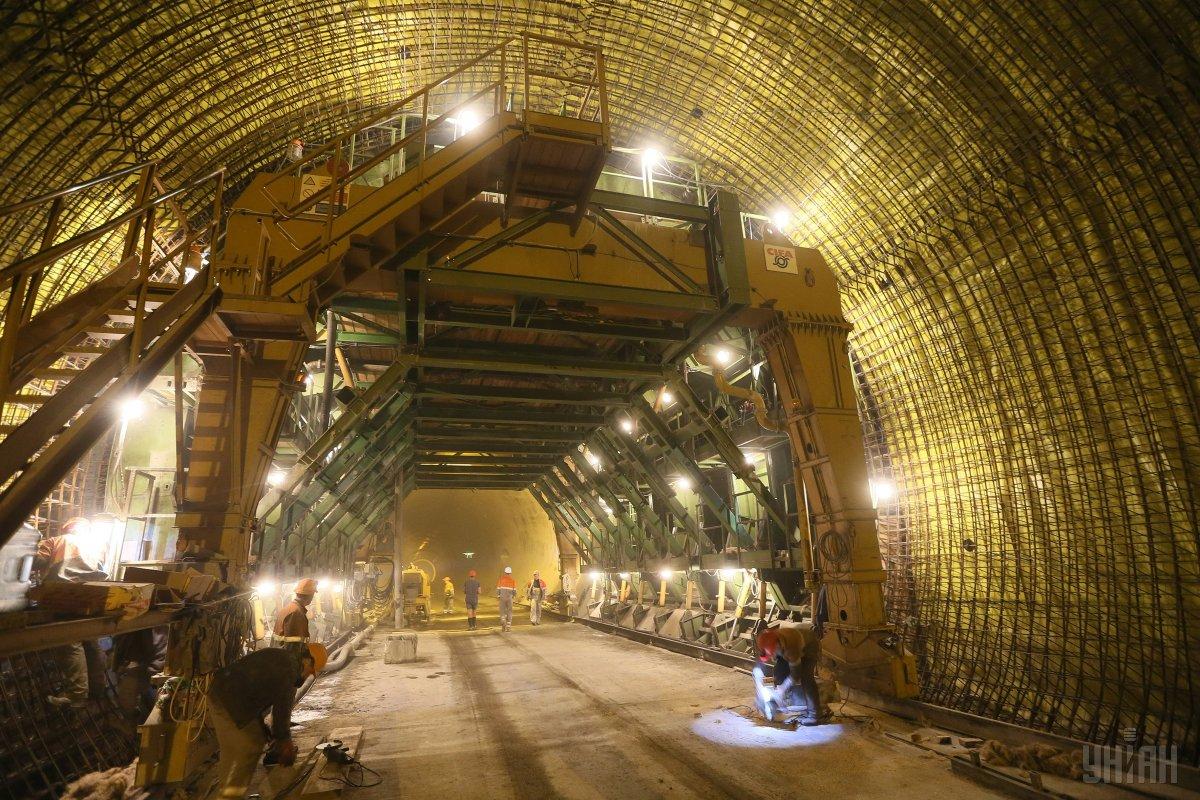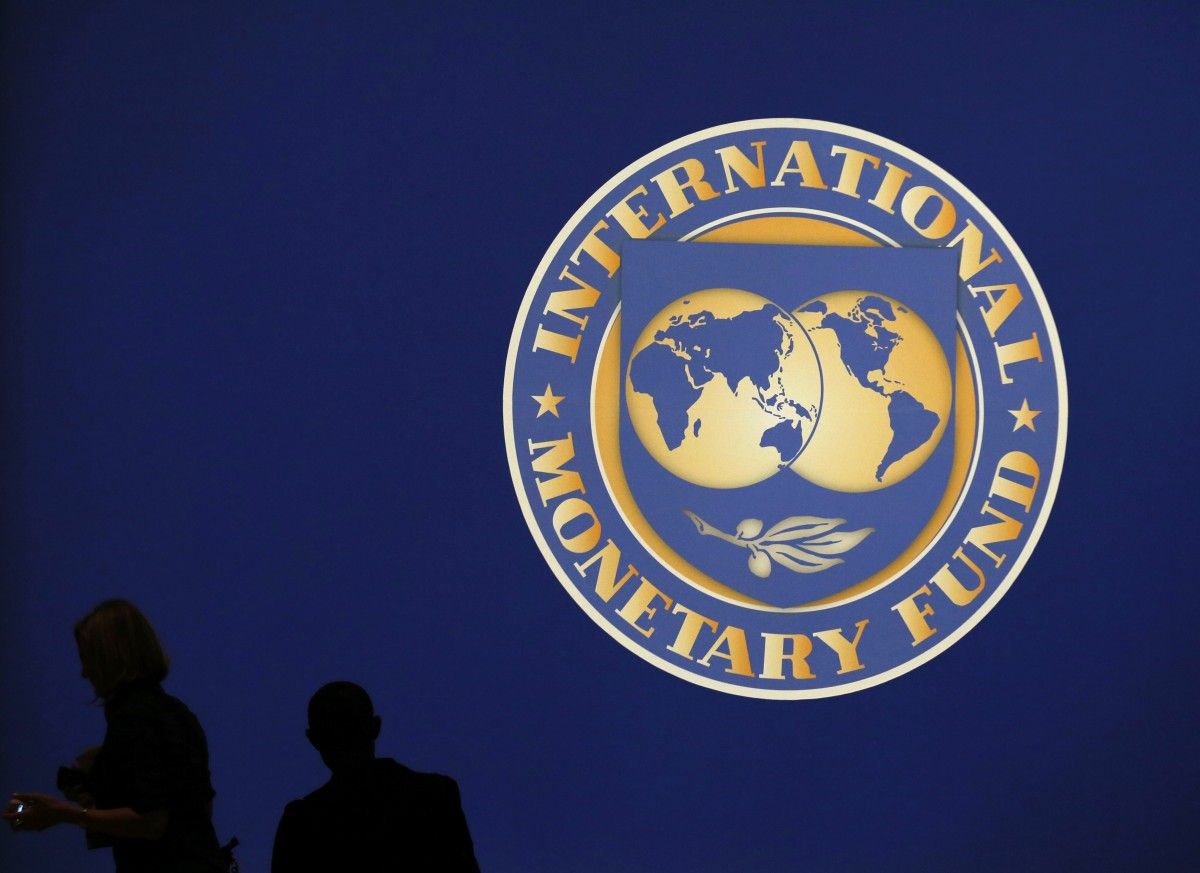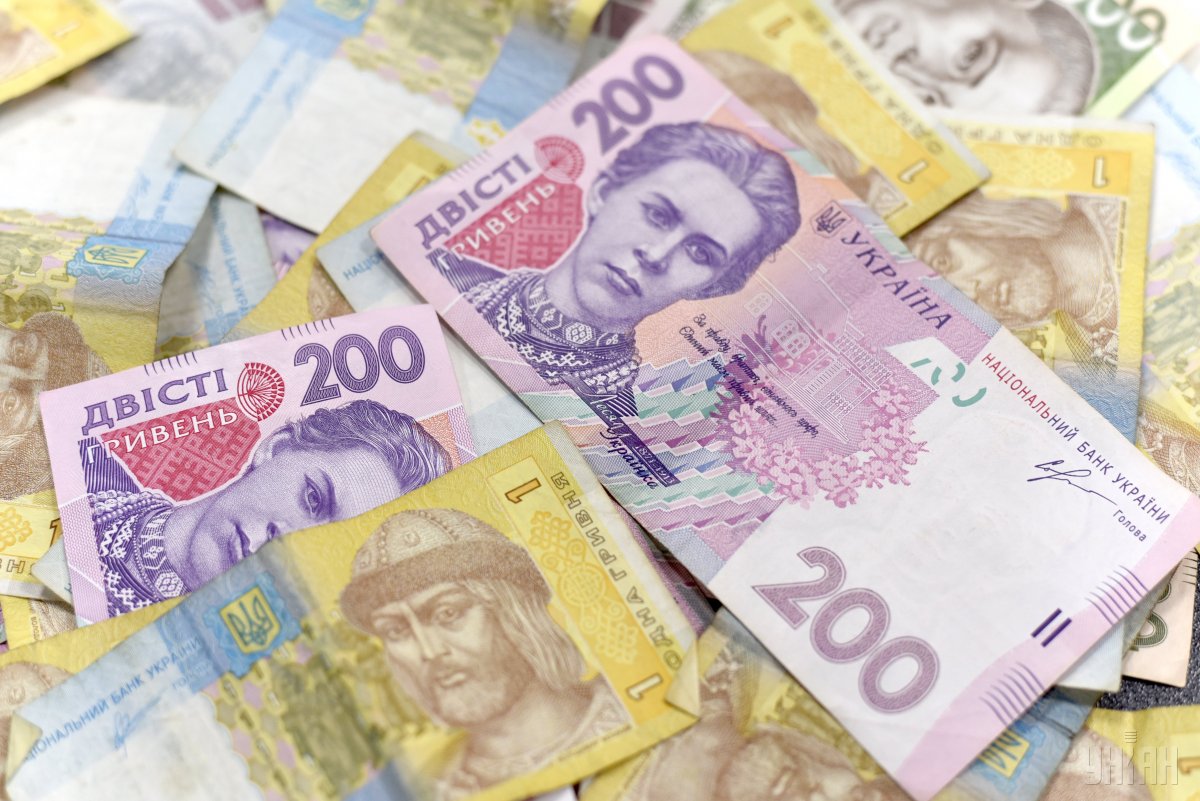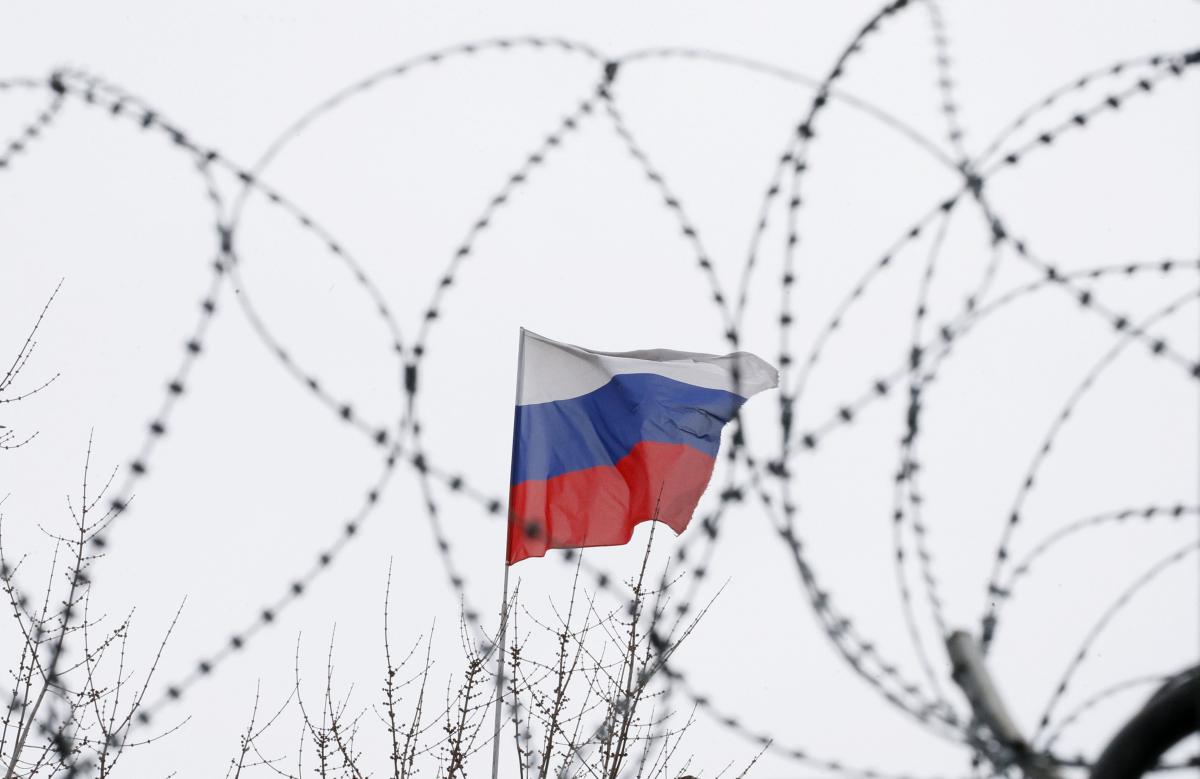
Week's balance: New tunnel to Europe, anti-corruption court's final stretch, and Russia sanctions
Ukraine has opened the Beskidy Tunnel passing through the Carpathian ridge and connecting the country with European Union with a new railway line, the National Bank warned about the need to fulfill IMF conditions as soon as possible, while the presidential administration promulgated the sanctions list against Russia – these are the key economic developments in the outgoing week.
This week, one of the most ambitious infrastructure projects in the history of Ukraine's independence was commissioned - the Beskidy Tunnel running through the Carpathian ridge and delivering a new connection line with the European Union. The 1765m long tunnel hosts two railway tracks and is set to improve the transport connection between Lviv and Mukachevo, and will also accelerate transportation of goods and passengers to Europe.
"The Beskidy tunnel, which we are now opening, is the largest infrastructure project in recent decades. Since 1998, there have been discussions about its construction but we built it in four years. Thanks to the efforts of the contractors, the builders, we did it seven months ahead of schedule," President Petro Poroshenko said at a ceremony opening the tunnel.
According to the head of state, 60% of exports transported by rail goes through the tunnel. The old tunnel was in an emergency condition, allowing passage of only 40-45 trains a day, while the capacity of the new one will be more than 100 trains. In addition, the new tunnel will increase the speed of trains from 20-40 kph to 60 kph.
Wider capacity is seen very important for Ukraine, against the background of the entry into force in 2014 of the Deep and Comprehensive Free Trade Agreement with the European Union and a constant growth of the Ukraine-EU trade turnover.
"Over the past year, we have seen an increase in freight turnover with the European Union. In general, over the past year alone, 20 million tonnes of cargo has been transported through the old Beskidy Tunnel. In particular, our metallurgical, chemical and agrarian enterprises increased the volume of transport of products to the European Union through land crossings. Therefore, the development of railway communication with the EU is not just an important, but a strategic step for Ukraine," Ukrzaliznytsia CEO Yevhen Kravtsov said in a comment for UNIAN.

According to Ukrzaliznytsia, the construction of the Beskidy Tunnel cost EUR 106 million – the funds attracted in the form of loans from the European Bank for Reconstruction and Development and the European Investment Bank: EUR 40 million and EUR 55 million, respectively, as well as the carrier's funds.
The new tunnel will also improve passenger transportation to Zakarpattia region, which will positively affect the development of tourism in Ukraine. Especially considering that the country has recently been hosting an increasing number of large-scale international events, a new way of transfer will play its positive role.
Critical days for friendship with IMF

In the outgoing week, Ukrainian deputies began to consider the bill on the Anti-Corruption Court, the adoption of which is one of the main conditions the International Monetary Fund sets before the country to ensure a continued cooperation program.
The law on the Anti-Corruption Court should be adopted in accordance with the recommendations of the Venice Commission of the Council of Europe, offering that the final decision on appointment of judges be made by international experts, with which the Ukrainian government not really agrees. For example, President Petro Poroshenko suddenly remembered that the requirement contradicts the Constitution of Ukraine.
Realizing that the IMF will not allow Kyiv to deceive itself again (as it happened with the selection of judges to the Supreme Court), the head of state gave a go-ahead and the Verkhovna Rada proceeded to consider the fateful bill on Wednesday, May 23. But the MPs are moving too slowly, and it is numerous amendments that are to blame. Perhaps, the bill will be adopted at the next plenary week. But it is not entirely clear whether the authorities succeeded in reaching a consensus on the IMF's key requirement. Bargaining for the main amendment – the one on the procedure for forming a council of international experts - was being held throughout the whole week.
In addition to the creation of the Anti-Corruption Court, to continue the cooperation with the IMF, it is important to resolve the issue with the gas price for the households and reform the country's gas market. The government intends to determine gas prices next week, that's before June 1. At the same time, the profile ministry has prepared a draft resolution, which extends by two months special obligations of Naftogaz to sell gas to the households at a special price, below the market one.
Meanwhile, Dmytro Vovk, whose days as head of the National Energy and Utility Regulations Commission are already numbered, delivered some breaking news, claiming that gas prices for the population will jump by at least 60-70%.
Anyway, Prime Minister Volodymyr Groysman has found himself at an impasse. On the one hand, the increase in gas prices will retain cooperation with the IMF, at the same time killing his ratings on the eve of the upcoming elections. On the other hand, not raising prices could undermine macrofinancial stability and during the peak of payments for external debts, Ukraine might be left alone with its problems and no support from its key creditors. In this situation, the prime minister will have to carefully weigh all cons and pros.
Meanwhile, the authorities swear they remain committed to IMF cooperation, just as the president did during a meeting with the major investors. The National Bank is also sending clear signals that cooperation with the IMF is extremely important amid tougher access of developing countries to the global capital market and the growth of the cost of debt attracting against dollar appreciation, geopolitical tension and risks of trade wars.
The regulator called the near future decisive in Ukraine's relations with the IMF, while carrying out structural reforms within the framework of the cooperation program remains critical for maintaining macrofinancial stability and ensuring long-term economic growth.
However, even despite the huge amount of external payments ($24 billion in 2018-2021), the National Bank sees no threat of Ukraine's default in 2019 as some predicted pessimistically.
"As for the forecasts of experts, we are not talking about default at all," NBU head Yakiv Smolii said during a monetary briefing, stressing that Ukraine must fulfill its obligations before the IMF.
Inflation sets for decline

This week, the NBU announced that inflation has finally begun to subside. The regulator expects a significant drop in prices in May, reflecting both the statistical effects of the comparison base and the significant reduction in the cost of food products. According to the regulator, inflation will continue to decline gradually, which is in line with the NBU forecasts released in the April report.
"It will be at 8.9% at the end of this year and will return to the target range in mid-2019," the central bank recalled.
Despite optimistic forecasts, the NBU did not dare reduce the key rate, retaining it at 17%. The central bank stressed that implementing a tight monetary policy restrains fundamental inflationary pressures. According to the regulator's estimates, the most significant impact of monetary policy was that on the hryvnia exchange rate, contributing to its strengthening since January this year.
The State Statistics Service released data on the industrial output in April. The report says the industrial growth rate accelerated to 3% compared with April 2017. The result was due the growth recorded in all major industrial subsectors. In particular, electricity supply was up 8.6%, mining industry grew 5.6%, while the processing industry showed a 0.8% growth.
The Ministry of Economic Development and Trade expects that in the first half of 2018, the industry will continue to increase production in the context of all aggregated types of industrial activity, thanks to investment, exports, and consumer demand. In connection with the growth of economic indicators within 10 days, the Ministry should submit to the government its updated macro-forecasts.
Bans on aggressor

Also this week, the updated list of personal special economic and other restrictive measures (sanctions) Ukraine had imposed against Russia in line with the resolution of the National Security and Defense Council was published on the presidential administration website. The list includes 1,748 individuals and 756 legal entities, while last year there were 1,228 individuals and 468 legal entities in it.
Among sanctioned businessmen is an ex-owner of East European Fuel and Energy Company Group Serhiy Kurchenko. He is banned from withdrawing from Ukraine the capital of his companies, carrying out transactions with securities, obtaining permits and licenses for investment from the National Bank. All Kurchenko's assets in Ukraine are being blocked.
The list also includes individuals occupying the posts of the so-called "energy ministers" of the unrecognized "DPR" and "LPR" as well as Gazprom CEO Alexei Miller. He is prohibited from withdrawing capital from Ukraine and entering Ukraine, while his assets in Ukraine are also blocked.
Sanctions affected the INDX crypto-currency exchange, software products of Moscow's MICEX-RTS, WebMoney electronic payment system, which on the day following the introduction of restrictions announced the blocking of accounts of 4 million Ukrainians.
At the same time, some companies were withdrawn from the sanctions list. In particular, it is lottery operators MSL and Patriot, which have already been blacklisted three times since their beneficiaries were Russian residents.
The requirements for Ukrainian subsidiaries of Russian state banks were also softened. The NBU authorized sanctioned Russian state-owned banks to re-capitalize their Ukrainian subsidiaries, including Sberbank, Prominvestbank, VTB Bank and BM Bank. The regulator noted that this would avoid recognizing sanctioned Ukrainian subsidiary banks insolvent due to the insufficient capital, since such a situation could lead to an additional burden on the Individual Deposits Guarantee Fund and Ukraine's Budget.
Next week, the country will see some no less important economic news. First of all, the focus will be on the Verkhovna Rada, where the deputies are expected to pass the bill on the Anti-Corruption Court. At the same time, the government will probably make a decision regarding the increase in gas prices for the population.
Ksenia Obukhovska

